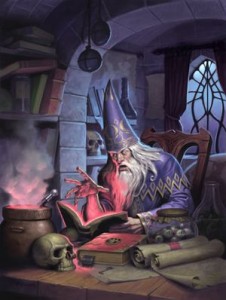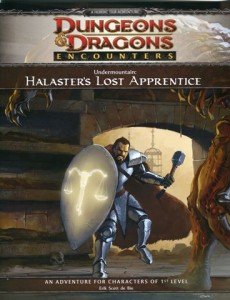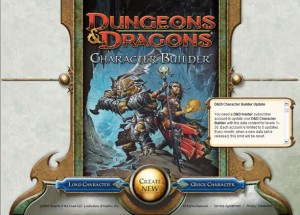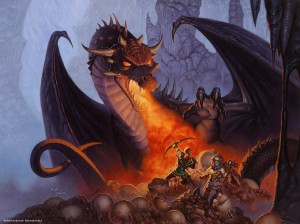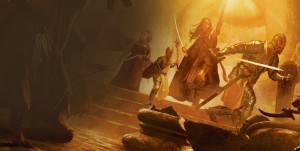 I owe the players at my game table an apology. Because of my unpredictable dice, our encounter was over after only two rounds. Less than half-an-hour into week 6, we were done. Sorry guys. Whenever dice have an impact on the outcome of events, there’s always the outside chance that they’ll do the unexpected.
I owe the players at my game table an apology. Because of my unpredictable dice, our encounter was over after only two rounds. Less than half-an-hour into week 6, we were done. Sorry guys. Whenever dice have an impact on the outcome of events, there’s always the outside chance that they’ll do the unexpected.
Since I began playing and writing about my participation in D&D Encounters, I’ve tried to keep things as spoiler free as possible. This week I need to be specific, otherwise I won’t have very much to write about.
D&D Encounters is a 12-part adventure from Wizards of the Coast and it’s played out one encounter each week over 12 weeks.

